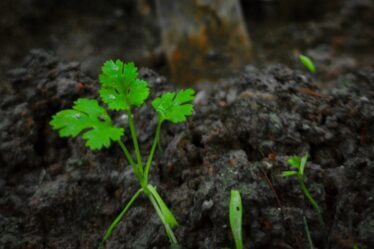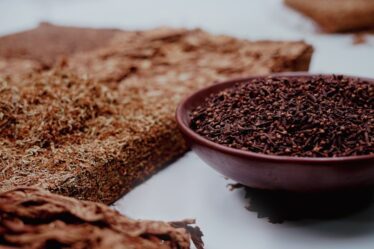
Seasoning is an essential part of meat preparation that can elevate the flavor of any dish. Whether you’re grilling a steak, roasting a chicken, or braising a pork shoulder, the right combination of seasonings can take your meat from ordinary to extraordinary. Seasonings not only enhance the taste of meat, but they also add depth and complexity to the overall dish. In this article, we will explore the role of seasonings in meat preparation, discuss different types of seasonings, and provide tips and techniques for using them effectively.
Key Takeaways
- Seasonings play a crucial role in enhancing the flavor of meat.
- Choosing the right meat seasoning depends on the type of meat and personal preference.
- Classic meat seasonings like salt, pepper, and garlic are essential in any kitchen.
- Exotic meat seasonings from around the world can add unique flavors to your dishes.
- Marinades can tenderize meat and add flavor, but it’s important to use fresh ingredients.
Understanding the Role of Seasonings in Meat Preparation
Seasonings play a crucial role in enhancing the flavor of meat. They can bring out the natural flavors of the meat, add complexity and depth, and balance out any undesirable tastes. When used correctly, seasonings can transform a simple piece of meat into a mouthwatering dish.
Different seasonings have different effects on the taste and texture of meat. For example, salt enhances the natural flavors of meat by drawing out moisture and breaking down proteins, resulting in a more tender and flavorful end product. Pepper adds a subtle heat and earthiness to meat dishes, while garlic and onion provide aromatic and savory notes. Other seasonings like herbs, spices, and marinades, can add unique flavors and aromas that complement the meat.
The Basics of Choosing the Right Meat Seasonings
Choosing the right seasonings for your meat dishes can make all the difference in flavor. When selecting seasonings, it’s important to consider factors such as the type of meat you’re cooking, the cooking method you’ll be using, and your personal taste preferences.
For example, if you’re grilling a steak, you may want to use bold and robust seasonings like salt, pepper, garlic powder, and paprika to enhance the natural flavors of the meat. On the other hand, if you’re roasting a chicken, you might opt for more delicate seasonings like thyme, rosemary, and lemon zest to complement the poultry.
Experimenting with different seasonings is also a great way to discover new flavor combinations. Don’t be afraid to try out different herbs, spices, and marinades to find your own unique flavor profile.
The Top Five Classic Meat Seasonings You Need to Know
| Seasoning | Description | Best Used With |
|---|---|---|
| Salt | A mineral that enhances flavor and preserves meat. | Beef, pork, chicken, and fish |
| Pepper | A spice that adds heat and depth of flavor. | Beef, pork, chicken, and fish |
| Garlic | A pungent herb that adds a savory flavor. | Beef, pork, chicken, and lamb |
| Paprika | A spice that adds a smoky, sweet flavor. | Chicken, pork, beef, and fish |
| Cumin | A spice that adds a warm, earthy flavor. | Beef, pork, chicken, and lamb |
When it comes to classic meat seasonings, there are a few staples that every home cook should have in their pantry. These seasonings include salt, pepper, garlic, onion, and paprika.
Salt is perhaps the most important seasoning for meat. It not only enhances the natural flavors of the meat but also helps to tenderize it by drawing out moisture. Pepper adds a subtle heat and earthiness to meat dishes. Garlic and onion provide aromatic and savory notes that complement the meat. Paprika adds a smoky and slightly sweet flavor to dishes.
To use these seasonings effectively, it’s important to understand how they interact with different types of meat. For example, salt can be used as a dry rub or added to marinades to enhance the flavor of beef, pork, chicken, and fish. Pepper can be used as a seasoning for steaks or added to marinades for poultry. Garlic and onion can be used as a dry rub or added to marinades for any type of meat. Paprika is often used in spice rubs for pork or added to marinades for chicken.
Exploring Exotic Meat Seasonings from Around the World
If you’re looking to add some international flair to your meat dishes, there are plenty of exotic seasonings from around the world that you can try. These seasonings can add unique flavors and aromas that will take your dishes to the next level.
One example is curry powder, which is a blend of spices commonly used in Indian cuisine. It adds a warm and aromatic flavor to meat dishes. Another example is za’atar, a Middle Eastern spice blend made from dried herbs, sesame seeds, and sumac. It adds a tangy and earthy flavor to meat dishes.
To incorporate these seasonings into your cooking, you can use them as dry rubs, marinades, or even sprinkle them on top of cooked meat for added flavor. Experiment with different combinations and ratios to find the perfect balance of flavors.
The Role of Marinades in Meat Seasoning and How to Make Them

Marinades are a great way to tenderize meat and infuse it with flavor. They typically consist of a combination of acid (such as vinegar or citrus juice), oil, herbs, spices, and other flavorings.
The acid in the marinade helps to break down the proteins in the meat, resulting in a more tender end product. The oil helps to keep the meat moist during cooking and adds richness to the flavor. The herbs, spices, and other flavorings add depth and complexity to the marinade.
To make a marinade, simply combine your desired ingredients in a bowl or resealable bag and add the meat. Make sure the meat is fully coated in the marinade and refrigerate for at least 30 minutes or up to 24 hours, depending on the type of meat and desired flavor intensity.
The Importance of Using Fresh Herbs and Spices in Meat Seasoning
Using fresh herbs and spices in your meat dishes can make a world of difference in terms of flavor. Fresh herbs have a more vibrant and aromatic taste compared to their dried counterparts. Fresh spices also have a more potent flavor profile.
To use fresh herbs in your meat dishes, simply chop them up finely and sprinkle them over the meat before cooking or add them to marinades. Some popular herbs for meat seasoning include rosemary, thyme, basil, parsley, and cilantro.
When it comes to fresh spices, you can grind them yourself using a mortar and pestle or a spice grinder. This will release the oils and flavors of the spices, resulting in a more intense taste. Some popular spices for meat seasoning include cumin, coriander, cinnamon, nutmeg, and cloves.
The Pros and Cons of Using Dry Rubs vs. Wet Rubs for Meat Seasoning
When it comes to seasoning meat, there are two main methods: dry rubs and wet rubs. Each method has its own advantages and disadvantages.
Dry rubs are a mixture of herbs, spices, salt, and sugar that are rubbed onto the surface of the meat before cooking. They form a flavorful crust on the meat and help to seal in the juices. Dry rubs are great for grilling or roasting meats, as they add texture and flavor to the exterior.
Wet rubs, on the other hand, are made by combining herbs, spices, oil, and other liquid ingredients to form a paste. The paste is then spread over the meat before cooking. Wet rubs are great for marinating meats, as they penetrate the meat and infuse it with flavor. They also help to keep the meat moist during cooking.
The choice between dry rubs and wet rubs ultimately depends on personal preference and the type of meat you’re cooking. Dry rubs are great for adding texture and flavor to grilled or roasted meats, while wet rubs are ideal for marinating meats and keeping them moist during cooking.
Tips for Balancing Sweet, Sour, Salty, and Spicy Flavors in Meat Seasoning
Balancing different flavor profiles is key to creating well-seasoned meat dishes. The four main flavor profiles to consider are sweet, sour, salty, and spicy.
To achieve a balanced flavor profile, start by identifying the dominant flavor you want to highlight in your dish. For example, if you’re making a sweet and spicy barbecue sauce, you’ll want to balance the sweetness of the sugar with the heat of the chili peppers.
To add sweetness, you can use ingredients like honey, maple syrup, brown sugar, or fruit juices. To add sourness, you can use ingredients like vinegar, citrus juice, or yogurt. To add saltiness, you can use ingredients like soy sauce, fish sauce, or salt. To add spiciness, you can use ingredients like chili peppers, hot sauce, or spices like cayenne pepper or paprika.
Start by adding a small amount of each ingredient and tasting as you go. Adjust the seasoning as needed until you achieve the desired flavor balance.
How to Use Seasoning Blends to Add Depth and Complexity to Your Meat Dishes
Seasoning blends are pre-mixed combinations of herbs, spices, and other flavorings that can add depth and complexity to your meat dishes. They are a convenient way to add flavor without having to measure out individual ingredients.
Some popular seasoning blends include Cajun seasoning, Italian seasoning, Mexican seasoning, and Chinese five-spice powder. These blends can be used as dry rubs or added to marinades to enhance the flavor of meat dishes.
To use seasoning blends effectively, simply sprinkle them over the meat before cooking or mix them into a marinade. Experiment with different blends and ratios to find your favorite combinations.
Enhancing the Flavor of Your Meat with Smoke and Grilling Techniques
Smoke and grilling techniques can add a unique and delicious flavor to your meat dishes. Smoking involves cooking meat over indirect heat with wood chips or chunks that produce smoke. The smoke infuses the meat with a smoky flavor that is often associated with barbecue.
Grilling techniques such as searing and basting can also enhance the flavor of meat. Searing involves cooking the meat over high heat to create a caramelized crust, while basting involves brushing the meat with a flavorful sauce or marinade during cooking.
To use smoke and grilling techniques effectively, start by choosing the right type of wood chips or chunks for smoking. Different types of wood produce different flavors, so experiment with different varieties to find your favorite. When grilling, make sure to preheat your grill and oil the grates to prevent sticking. Use a meat thermometer to ensure that your meat is cooked to the desired doneness.
Seasoning is an essential part of meat preparation that can elevate the flavor of any dish. Understanding the role of seasonings in meat preparation, choosing the right seasonings, and using them effectively can take your meat dishes from ordinary to extraordinary. Whether you’re using classic seasonings like salt, pepper, garlic, and onion or exploring exotic seasonings from around the world, there are endless possibilities for enhancing the flavor of your meat dishes. Experiment with different herbs, spices, marinades, and grilling techniques to find your own unique flavor profile. With a little bit of knowledge and creativity, you can create mouthwatering meat dishes that will impress your family and friends.
If you’re looking to elevate your meat dishes to a whole new level, you’ll definitely want to check out this article on Flavorful Sips. They have compiled a list of the best seasonings for meat that will take your culinary creations from ordinary to extraordinary. But that’s not all; they also have some fascinating articles on other exotic ingredients like mangosteen and kaffir limes. So, if you’re ready to explore the world of unique flavors and enhance your cooking skills, be sure to click on these links: Exploring Mangosteen and Exploring the Culinary Artistry of Kaffir Limes. Happy seasoning!



